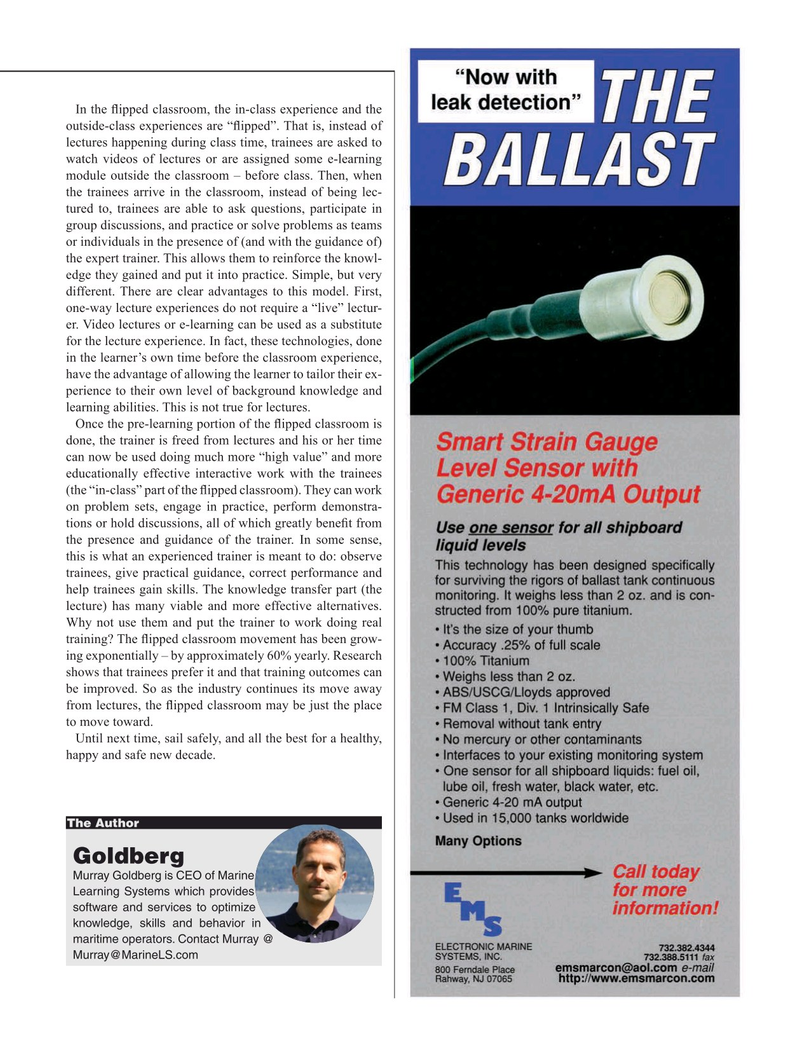
Page 11: of Maritime Reporter Magazine (January 2020)
Ship Repair & Conversion Annual
Read this page in Pdf, Flash or Html5 edition of January 2020 Maritime Reporter Magazine
In the ? ipped classroom, the in-class experience and the outside-class experiences are “? ipped”. That is, instead of lectures happening during class time, trainees are asked to watch videos of lectures or are assigned some e-learning module outside the classroom – before class. Then, when the trainees arrive in the classroom, instead of being lec- tured to, trainees are able to ask questions, participate in group discussions, and practice or solve problems as teams or individuals in the presence of (and with the guidance of) the expert trainer. This allows them to reinforce the knowl- edge they gained and put it into practice. Simple, but very different. There are clear advantages to this model. First, one-way lecture experiences do not require a “live” lectur- er. Video lectures or e-learning can be used as a substitute for the lecture experience. In fact, these technologies, done in the learner’s own time before the classroom experience, have the advantage of allowing the learner to tailor their ex- perience to their own level of background knowledge and learning abilities. This is not true for lectures.
Once the pre-learning portion of the ? ipped classroom is done, the trainer is freed from lectures and his or her time can now be used doing much more “high value” and more educationally effective interactive work with the trainees (the “in-class” part of the ? ipped classroom). They can work on problem sets, engage in practice, perform demonstra- tions or hold discussions, all of which greatly bene? t from the presence and guidance of the trainer. In some sense, this is what an experienced trainer is meant to do: observe trainees, give practical guidance, correct performance and help trainees gain skills. The knowledge transfer part (the lecture) has many viable and more effective alternatives.
Why not use them and put the trainer to work doing real training? The ? ipped classroom movement has been grow- ing exponentially – by approximately 60% yearly. Research shows that trainees prefer it and that training outcomes can be improved. So as the industry continues its move away from lectures, the ? ipped classroom may be just the place to move toward.
Until next time, sail safely, and all the best for a healthy, happy and safe new decade.
The Author
Goldberg
Murray Goldberg is CEO of Marine
Learning Systems which provides software and services to optimize knowledge, skills and behavior in maritime operators. Contact Murray @
MR #1 (1-17).indd 11 1/10/2020 4:51:48 PM

 10
10

 12
12
